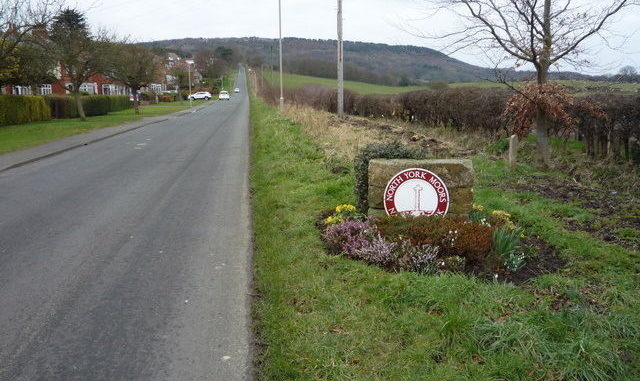
The new boss of the North York Moors National Park Authority which features more than 1,000 farms has warned the industry will face “profound change” post-Brexit.
Chief executive Tom Hinds’ issued the alert over “the centrepiece of the environmental and agricultural policy post-Brexit” as a full meeting of the body heard concerns many farmers would reject it.
Since the vote to leave the European Union, the government has signalled its determination to reform agricultural policy from subsidy-based direct payments to a more business-like partnership. It has proposed a Environmental Land Management System (ELMS) in which farmers and land managers are paid for providing environmental benefits.
Through ELMS agreements, which the government plans to launch in 2024, farmers and land managers will be paid for providing “public goods”, such as clean air, reducing environmental hazards and pollution, enhancing the landscape, helpling plants and wildlife thrive, clean water and mitigating the impact of climate change.
While helping the government develop an ELMS system, the park authority has found a high level of willingness among farmers and land managers to deliver all six of the public goods and strong levels of agreement towards farmers choosing their own methods for delivering environmental improvements.
However, the meeting was told as the authority had developed a tool
to model the economic impact of payments to the delivery of public goods and the impact this would have on different farming sectors active in the the national park, it had emerged ELMS agreements would only generate about 50 per cent of the money farmers are receiving under direct payments.
Members were told the funding change would “make one hell of a difference to the landscape”, as many farmers would conclude it would not be worth signing up to an agreement that they didn’t get their money back on.
Mr Hinds said: “There’s likely to be a period of profound change, not only in the funding landscape for agriculture and land management post-Brexit, but also in terms of the structural make up of the industry as a result of that.
“There will be change. There’s no way ELMS will be anywhere near as reunmerative for farmers as BPS [direct payments] was. From a national park point of view our objectives are to make sure the scheme works in the best way to help support and deliver our purposes through farmers and land managers on the ground.”
The meeting heard calls for the authority to lobby the government to make ELMS “as generous as it possibly can be” for national parks.
Tthe authority’s chairman, Jim Bailey, who runs a farm on the moors, said the authority had “bone fide evidence, a crystal ball of what the brave new world will do on the ground”.
Nevertheless, he believed there was cause for some optimism as the Whitehall officials he had spoken to were not “imagining massive change in capacity on the ground” and said seeing half or two-thirds of farmers leave the industry would be a political disaster.
He said: “It is about keeping those people, keeping those skills and keeping that capacity. If the scheme doesn’t capture those people who own the land you have either got to publicly purchase the park or you have got to find a way of getting to do what you want to happen there. It’s not all one-way traffic, there’s a deal to be done.”


Be the first to comment